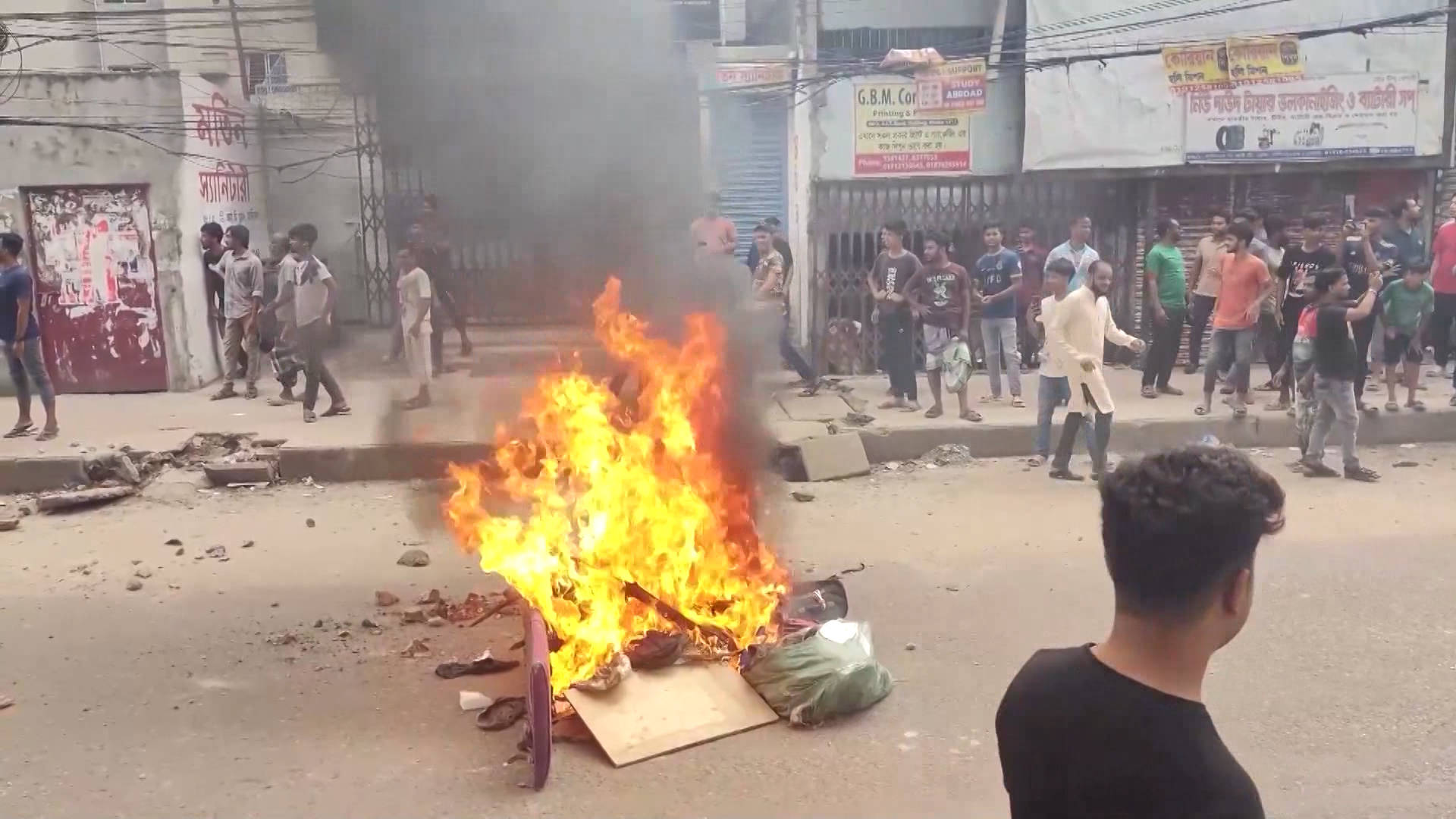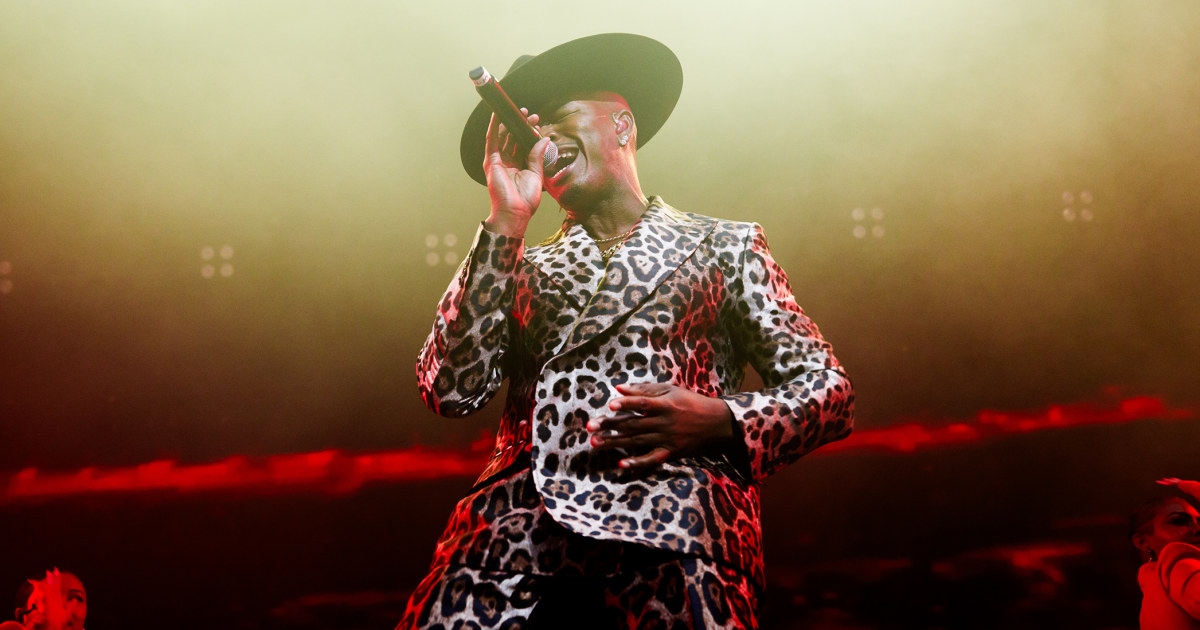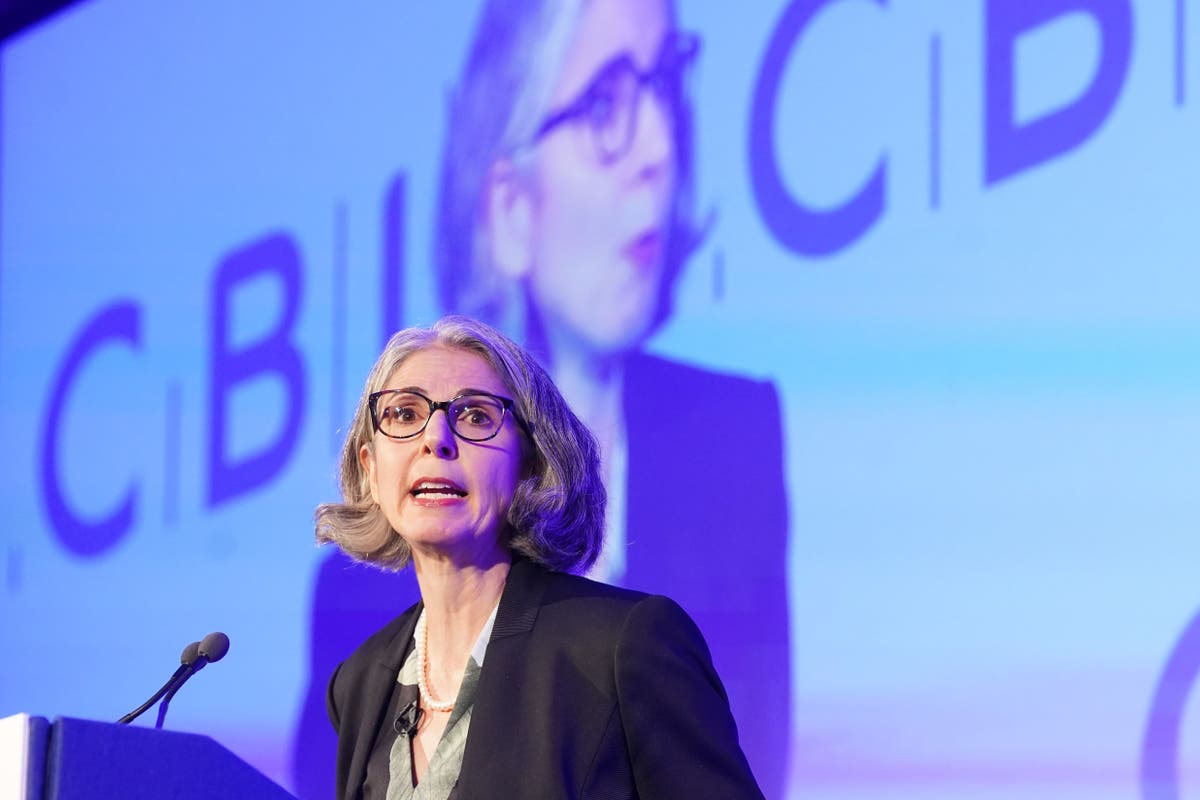Jobs
Bangladesh: 174 Killed, 2,500 Arrests in Student-Led Protests over Jobs, Inequality & Corruption

This is a rush transcript. Copy may not be in its final form.
AMY GOODMAN: This is Democracy Now!, democracynow.org. I’m Amy Goodman, with Juan González.
In Bangladesh, the death toll from the government’s crackdown on massive student protests has risen to at least 174, with more than 2,500 people arrested. Internet access across most of Bangladesh remain dark for a fifth day. Police and soldiers have been granted “shoot-on-sight” orders amidst a nationwide curfew. Protesters are seeking job security and higher pay and want an end to civil service job quotas they call discriminatory. The quota system was designed to set aside a portion of government positions for the relatives of soldiers who fought in Bangladesh’s independence war against Pakistan in 1971.
Joining us here in New York is Salil Tripathi. He is the author of The Colonel Who Would Not Repent: The Bangladesh War and Its Unquiet Legacy. He’s on the board of PEN International, a contributing editor to The Caravan.
Welcome to Democracy Now! It’s great to have you with us, Salil. If you could start off by explaining what’s happening in Bangladesh, for a global audience who may not have been paying attention?
SALIL TRIPATHI: Right. So, we do have to go back to the 1971 war, in which hundreds of thousands of people died and a lot of Bangladeshi freedom fighters fought for freedom. In 1972, year after the war, Sheikh —
AMY GOODMAN: And the war was between?
SALIL TRIPATHI: The war was, basically, Pakistan was running Bangladesh. It used to be called East Pakistan then. And for about nine months, from March 1971 to December 1971, the war lasted, in which hundreds of thousands of people died. And toward the end of the war, India joined in and helped liberate Bangladesh. But it was essentially a Bangladeshi victory for independence.
Now, after the war, the prime minister — the first elected prime minister was Sheikh Mujibur Rahman, the father of the current prime minister, Sheikh Hasina Wazed. He decided that they must do something for those who had sacrificed so much for the country, and which was this job security program, that they would have prior access to jobs. Later, it became a kind of a jobs for the kin sort of an exercise, and therefore, their children, their descendants, their grandchildren kind of got that benefit in perpetuity.
So, at one, there is an estimate which shows that the number of people who were actually involved in the war and could be called freedom fighters, maybe about 2 to 5% of the population. But the quota that was given to them was vastly disproportionate, at 30%.
Now, Bangladesh has a jobs crisis. About 12% or so of the young people between the ages of 15 and 29 are without jobs. A lot of other people are also looking for work. The men have to go abroad to work in backbreaking jobs in the Middle East and Southeast Asia, and the women are working in the garment factories. So there’s a lot of anxiety about job security. Government jobs provide that security. And a lot of people who are educated in all the universities want those jobs. And I think that’s why there is this resentment that those who are not part of this category are not able to get it.
JUAN GONZÁLEZ: And could you talk about why Bangladesh has remained mired in such poverty, one of the poorest countries in the world, subsequent to independence, and how that has fueled the discontent of the young people?
SALIL TRIPATHI: So, it’s an interesting question, because if you look at economic growth figures, Bangladesh is doing rather well. It has been growing at the rate of 6.6% a year. It will — and by 2026, it is not going to be called a least developed country anymore by the U.N. And it has made impressive gains in removing absolute poverty, from about 12% about 10 years ago to as little as 5% now. So, in terms of certain parameters, it’s doing well. Its per capita income is higher than India’s.
But there is growing inequality, because there have been a lot of people who have become very, very wealthy. And some of that wealth is also partly because of corruption and nepotism. So, the collective anger that you’re seeing is over that inequality, lack of opportunities, and a perception that those who are close to the ruling class and ruling elite are getting all the benefits.
JUAN GONZÁLEZ: And in terms for those people who are not familiar with the period before the independence war, could you talk about the role of the British colonialists in the partition and the independence movements in the Indian subcontinent?
SALIL TRIPATHI: Certainly. So, Bangladesh and Bengal were part of the United Bengal ’til about 1905, when the British were in control of India. In 1905, the province was divided into two halves, a Muslim part and a Hindu part, and that lasted ’til 1911. But between 1911 and 1947, which is when the partition occurred, a lot of religious divide continued to exist and prevail and became more significant. And in that process, you found a communalization of the politics there, and the British had the policy of divide and rule, and they were succeeding.
One of the pivotal elements that happened was during the Second World War, when Winston Churchill was the prime minister in England. He decided to divert crops that would have come and stayed in and come to India to other parts to feed the troops, who were in Southeast Asia. And that created an artificial famine. Amartya Sen has written extensively about it. Madhusree Mukerjee has written extensively about it. Her book is actually called Churchill’s Secret War. And close to 2 or 3 million people died. It’s an extremely dire situation. Satyajit Ray has made an amazing film about it called Ashani Sanket. So, it has been very well documented by artists, by filmmakers, by novelists. And that led to the impoverishment of the province.
And then, of course, the partition takes place. Most of the Hindu parts do go to India, and most of the Muslim parts remain in Bangladesh, and poverty has been setting in. Then, of course, you had the civil war back in 1971. And after the civil war, in 1974, there is a very bad famine. And that also leads to further impoverishment of the countryside. So, there has been a series of setbacks. And also, because of its delta, like, the situation with the Bay of Bengal and the cyclones, it’s a very fertile land, but also the parts which are closer to the water have become almost uninhabitable.
AMY GOODMAN: I want to ask you about the prime minister, Salil. On Monday, the Bangladeshi Prime Minister Sheikh Hasina defended her deployment of the military to the streets, blaming the main opposition Bangladesh Nationalist Party, or BNP, for the instigating the violence. This is what she said.
PRIME MINISTER SHEIKH HASINA: [translated] BNP is instigating it. My question is: They are doing so many things; who is patronizing them? Can you find who they are getting the financial help from? …
The most sensitive thing is the matter of the students. We must make sure that they won’t get harmed. We have tried, by efforts of our police and all our forces. When arson terrorism started, the protesting students said they were not involved in it. And we condemn it. We don’t want it. When they pulled off from the protest, I deployed army only then. I did not do it before the students pulled off from protests. Many want to tell me about deploying the army against the students. I was involved in student politics, starting from the Dhaka University. I know what the army could do.
AMY GOODMAN: So, that’s the Bangladeshi Prime Minister Sheikh Hasina, her fourth time as prime minister in this more than, what, 50-year history of an independent Bangladesh. Can you explain who she is and also what’s happening today? What has —
SALIL TRIPATHI: Sure.
AMY GOODMAN: The number of people who have been killed, the thousands who have been arrested, the number escalating every hour?
SALIL TRIPATHI: Yeah. It’s very interesting, her trajectory and her story, because she is one of the two sisters who were out of the country at the time when her father and almost the entire family were wiped out in the coup in 1975. And she remained in exile. In 1981, she comes back as the harbinger of democracy. People see her as a great hope. She works very hard with others, including her current rival, basically, Khaleda Zia, to work toward building a democracy. And they try to restore democracy. Democracy comes in. She gets elected in ’91. She loses in ’96. And then there’s a period when she’s out of power. And she gets elected again in 2008. In all of that period, there’s a lot of goodwill about her.
But once she is elected in 2008, the elections after that have been questioned. Opposition has boycotted two of the elections. And in the third, within hours of the launch of the elections, people started boycotting them. And the reason is that it was a lopsided election, with vote capturing, intimidation of voters, bogus voter lists and so on. So, she has perpetuated her rule.
And her main rival, Khaleda Zia, she has been under house arrest for eight years, the one that she has been singling out, BNP, here. She has been under house arrest for eight years. She is critically ill right now. I believe she is in a critical care unit at a hospital in — so, to imagine that she in charge — her son, who could be her successor, lives in exile in London. So, to imagine that she is somehow manipulating or choreographing an entire protest movement against Hasina is, well, a nice theory, but — I think it’s a nice narrative, but it’s very hard to establish that is the really the BNP which is at the forefront of it, or, for that matter, the Islamic party, Jamaat-e-Islami, which has never won more than 12% of the vote in Bangladesh, in 1991, and in the elections since, never more than 6 or 7%. So it is not a very popular, large force. Of course, in the subcontinent, you can fill a crowd with 100,000 people anytime, because it’s a highly populous region. But it’s 100,000 out of 180 million. And that’s the way to look at. So, it’s — obviously, she would want to say that, she would want to portray it as a continuation of past struggles, but it’s highly debatable.
JUAN GONZÁLEZ: I wanted to ask you also about how the prime minister is seen by other major powers in the region, specifically India, and the U.S. Is she seen mostly as a useful ally in a predominantly Muslim country?
SALIL TRIPATHI: Absolutely. And she has played that to her advantage. She has signed — there was a story on Voice of America some years ago — I mean, I was doing some research around it — which showed that she said she will stand shoulder to shoulder against the war — in the war on terror. And she has very close ties with Prime Minister Narendra Modi in India, where also she says that she’s going to make sure that the ties remain close. And again, she has given certain concessions to India, which have made India incredibly unpopular today in Bangladesh. And that deals with trade corridors and things like that. But those ties — she has a great ally in Narendra Modi, and she has the tacit support of the U.S. administration.
AMY GOODMAN: Where do you see this all headed right now?
SALIL TRIPATHI: Very good question. I mean, you know, prediction is always hard, particularly about the future. But more seriously, I think there are two options. One is that she’s going to dig her heels and stay where she is and hope that this passes. And I think it can pass, and she can probably — I’m not trying to say that she can redeem herself. It’s for Bangladeshis to decide. But she has to focus again on the vulnerable, on the poor, and try to see and operate in a fair and transparent manner. Whether she’s capable of doing that is a different question also.
The other feared scenario that people talk about — but it’s only a talk — is some kind of a military intervention, which I hope not, because nobody in Bangladesh really likes military rule, and nobody who cares for democracy would like it, either.
What can happen is what did happen between 2006 and 2008, which was a period when the military supported what was called a caretaker government. This was a government of wise people and economists and bureaucrats and academics and so on, who tried to help ease the transition to power. And she won after that. The election that she won in 2008 was because there had been a caretaker government in place. Bangladesh’s Constitution allowed that. But she abrogated that part of the Constitution, which is why that concept has gone.
But those are the kind of things that can happen. And maybe from these highly patriotic and spirited student demonstrators, we’ll see a new form of leadership emerge.
AMY GOODMAN: Well, Salil Tripathi, we want to thank you so much for being with us, author of The Colonel Who Would Not Repent: The Bangladesh War and Its Unquiet Legacy. Salil is on the board of PEN International, a contributing editor to The Caravan.
That does it for today’s broadcast. We have a job opening at Democracy Now!, director of development leading our fundraising. You can check out the details at democracynow.org and apply there.
Democracy Now! is produced with Mike Burke, Renée Feltz, Deena Guzder, Sharif Abdel Kouddous, Messiah Rhodes, Nermeen Shaikh, María Taracena, Tami Woronoff, Charina Nadura, Sam Alcoff. I’m Amy Goodman, with Juan González. Thanks so much for joining us.









